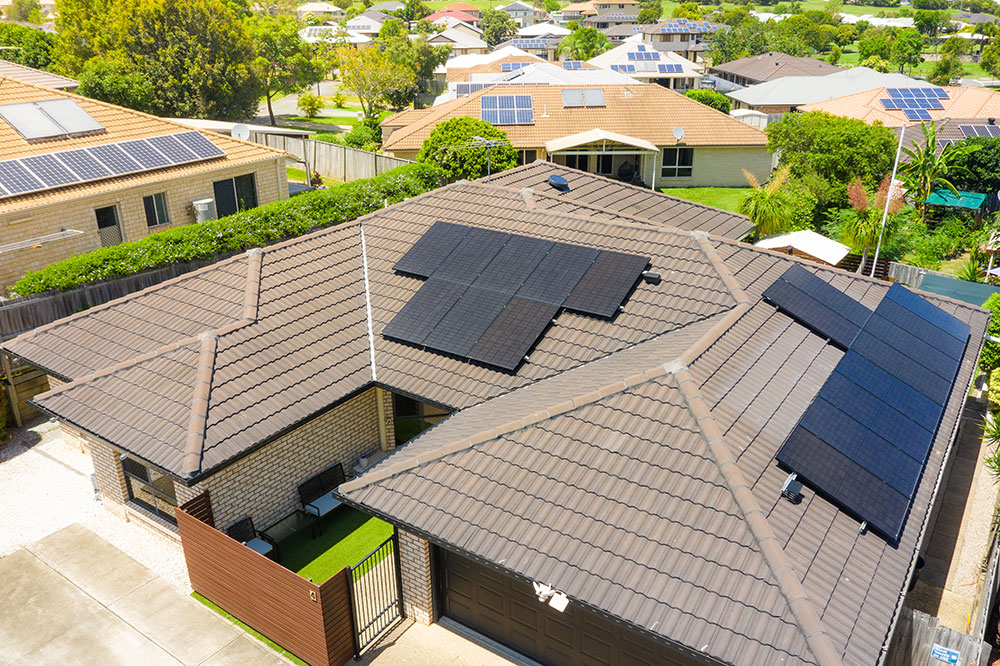Queensland Environment Minister Meaghan Scanlon has unveiled a draft e-products plan featuring a proposal to ban solar panels and other related equipment including batteries from being dumped into landfill within 10 years.
The state government said almost 1,000 tonnes of solar panels and battery energy storage systems was dumped into landfills across Queensland in 2019 and that figure is expected to increase significantly by the end of the decade.
“It is forecast that by 2030, the mix of e-waste generated per annum will change significantly. Solar PV and battery storage waste will grow the fastest to over 17,000 tonnes,” the 28-page draft report reads.
The 10-year plan will be complemented by an industry-led solar panel recycling scheme, with the government investing an initial $250,000 to fund a two-stage pilot program.
The pilot, to be led by the Smart Energy Council (SEC), will firstly identify participants and locations to divert end-of-life solar panels from landfill and recover their useful materials. Victoria-based circular economy specialists The Activ Group will also develop a tracking and information system to log volumes and locations of recovered materials.
The second stage of the pilot will see the collection, recovery and recycling of panels, with the focus on rooftop installations.
“With the highest rooftop solar penetration in the country, we need to explore how we deal with panels when they reach the end of their life,” Scanlon said in a statement.
“We’ve seen industry is keen to get involved, now it’s just a case of how – which is where the pilot led by the Smart Energy Council and Activ Group comes in.”
SEC Acting Chief Executive Officer Wayne Smith said the pilot program will help identify the optimum ways to encourage and incentivise higher quality recovery opportunities to deliver improved outcomes.
“The trial will examine the best ways to address any economic and logistical obstacles preventing the effective collection and disposal of unwanted household solar panels, with an initial focus on regional areas,” he said.
The SEC said it will establish a consultative committee, including PV manufacturers, distributors, retailers, installers and certificate traders; recycling companies; regulators; and local and state government representatives.
“The committee will meet monthly during the trial period to share advice, data and learnings to help inform a possible future solar stewardship scheme,” Smith said.
Peter Newland, Chief Executive Officer of Brisbane-based solar installer Planet Ark Power, welcomed the initiative, saying in addition to the environmental benefits, the proposal has the potential to deliver significant savings.
“Following hailstorms in Brisbane a couple of years ago we had to send damaged solar panels to Sydney for recycling at a cost of $3,000 per pallet,” he said.
“To develop a local recycling industry in a state that has installed more solar panels than any other in Australia is a very welcome addition to the Queensland’s clean technology sector and to the development of a circular economy.”
Scanlon said members of the public, industry and businesses can give feedback on the draft e-products plan until April 17.
“The draft plan shows Queensland is serious about dealing with electronic waste, and now we want to hear from Queenslanders and industry to make sure we get it right,” she said.
This content is protected by copyright and may not be reused. If you want to cooperate with us and would like to reuse some of our content, please contact: editors@pv-magazine.com.









1 comment
By submitting this form you agree to pv magazine using your data for the purposes of publishing your comment.
Your personal data will only be disclosed or otherwise transmitted to third parties for the purposes of spam filtering or if this is necessary for technical maintenance of the website. Any other transfer to third parties will not take place unless this is justified on the basis of applicable data protection regulations or if pv magazine is legally obliged to do so.
You may revoke this consent at any time with effect for the future, in which case your personal data will be deleted immediately. Otherwise, your data will be deleted if pv magazine has processed your request or the purpose of data storage is fulfilled.
Further information on data privacy can be found in our Data Protection Policy.